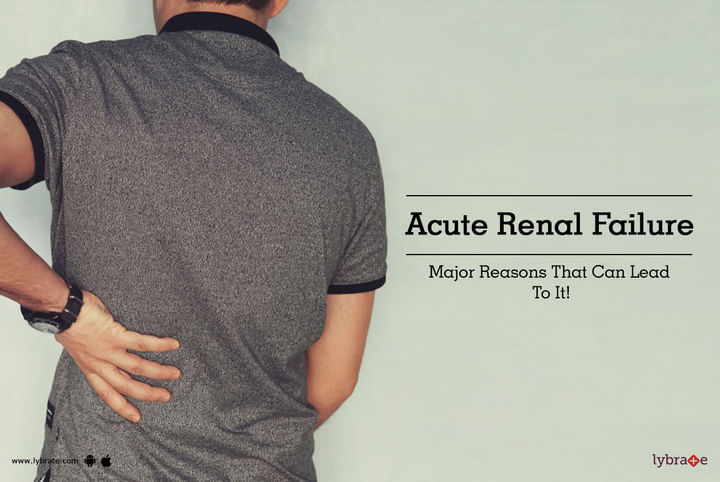Acute Renal Failure - Major Reasons That Can Lead To It!
Your kidneys perform multiple functions inside your body. But their main responsibility is to filter waste and remove extra fluid (urine) from your blood. Sometimes, kidneys stop working like they should. If they stop suddenly, you have what doctors call acute kidney failure (or acute renal failure).
Given that the disease develops rapidly, it is important for you to know the reasons responsible for it.
What are the causes of acute renal failure?
The disease usually affects your kidneys when you are experiencing one of the following conditions:
a. Impaired flow of blood to kidneys
A number of diseases and medical conditions may slow blood flow to your kidneys and lead to kidney injury. These may include: excessive loss of blood, heart attack, infections, liver failure, severe allergic reaction, major burns, severe dehydration etc. Intake of certain medications to manage blood pressure is also linked to the disease. Similarly, use of aspirin, ibuprofen, naproxen sodium, or similar drugs can also cause acute renal failure by reducing flow of blood to the kidneys.
b. Blockage of urine in the kidneys
If your kidneys' urine drainage tubes (ureters) become blocked, then it can lead to acute kidney failure. You are at an increased risk if you suffer from cancer of bladder, cervical, colon or prostate. Medical conditions such as an enlarged prostate, stones in kidneys, blood clots in your urinary tract or nerve damage in your bladder can also cause acute renal failure.
c. Direct injury to kidneys
Certain diseases, conditions and agents can damage your kidneys which in turn can lead to acute kidney failure. These include:
-
Blood clots in veins and arteries in and around your kidneys
-
Cholesterol deposits that block blood flow in the kidneys
-
Alcohol, heavy metals and cocaine
-
Glomerulonephritis (inflammation of tiny filters in the kidneys)
Now that you are aware about the causes of acute renal failure, you should also know that the disease is usually reversible. If you're otherwise in good health and get treatment without delay, then your kidneys may go back to normal functioning.


+1.svg)
